May 21, 2025 | 04:36 GMT +7
May 21, 2025 | 04:36 GMT +7
Hotline: 0913.378.918
May 21, 2025 | 04:36 GMT +7
Hotline: 0913.378.918
In recent years, Vietnam's vegetable and fruit export has continuously experienced strong growth. Statistics in the first 6 months of 2023 show that the export of vegetables and fruits nationwide is estimated at USD 2.8 billion, up 64.2% over the same period of 2022.
According to the Ministry of Agriculture and Rural Development (MARD), fruit export has great potential in the current context as the world demand is very high. However, countries are also building many technical barriers to food safety, forcing exporting enterprises to comply so that fruit production will result in sustainable export.
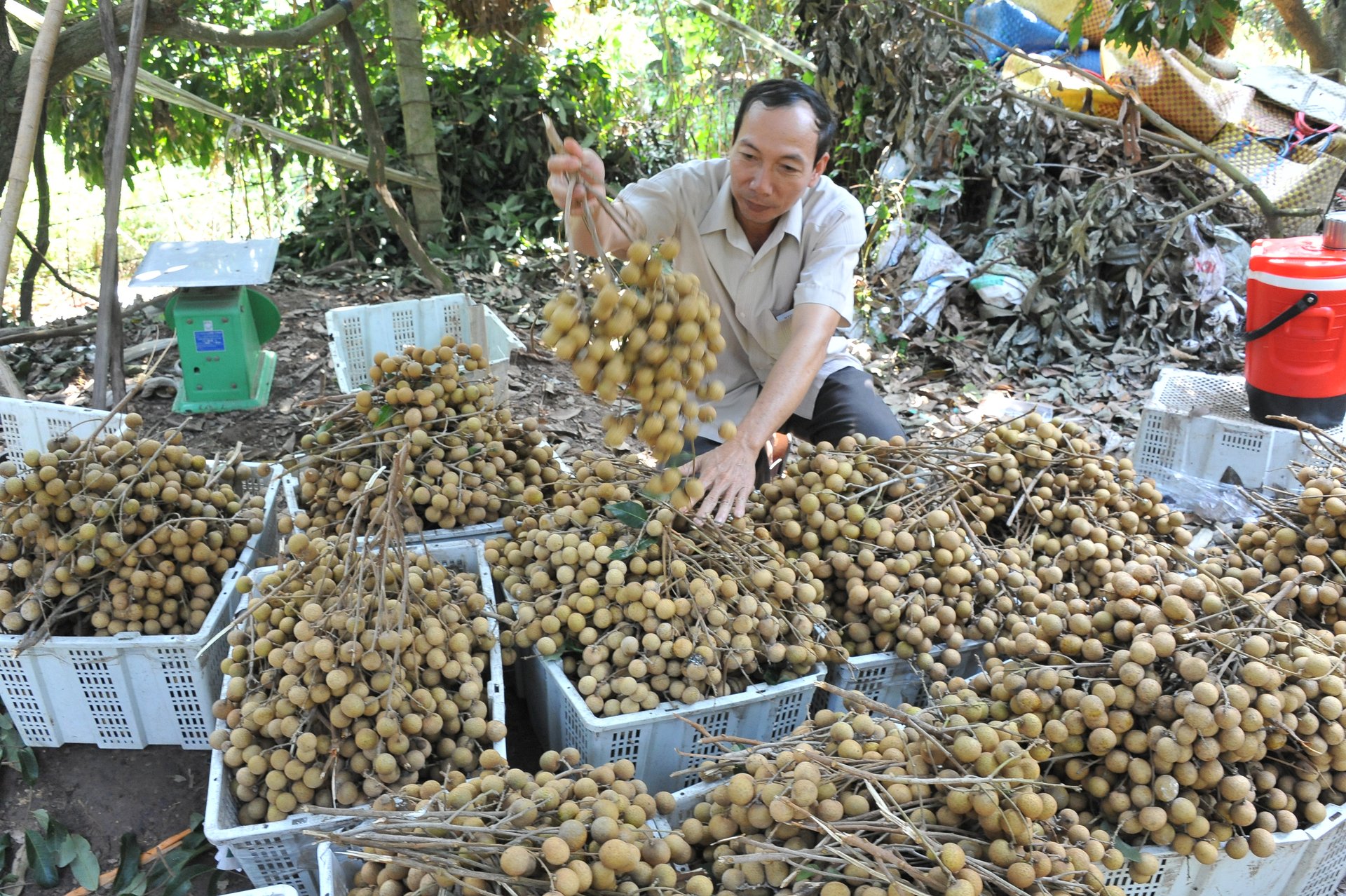
Can Tho City is one of the localities in the Mekong Delta with a sharp increase in fruit production acreage in recent years, reaching nearly 25,000 ha at present. Photo: Le Hoang Vu.
According to Can Tho Department of Agriculture and Rural Development, in 2018 the city had 18,291 ha of fruit trees, by 2019 it reached 20,125 ha, 21,623 ha in 2020, and 23,416 ha in 2021. By the end of 2022, the area of fruit trees in Can Tho City reached 24,589 ha, with a harvest of 194,507 tons.
Fruit trees grown in the city are diverse in categories. The most planted is mango with 3,374 ha, durian 2,965ha, longan 2,611 ha, jackfruit 1,962 ha, plum 1,791 ha, star apple 1,482ha, lemon 1.382 ha, banana 1.140 ha, orange 1.068 ha, grapefruit 744 ha, rambutan 392 ha, guava 314 ha, mangosteen 300 ha, and coconut 1,534 ha.
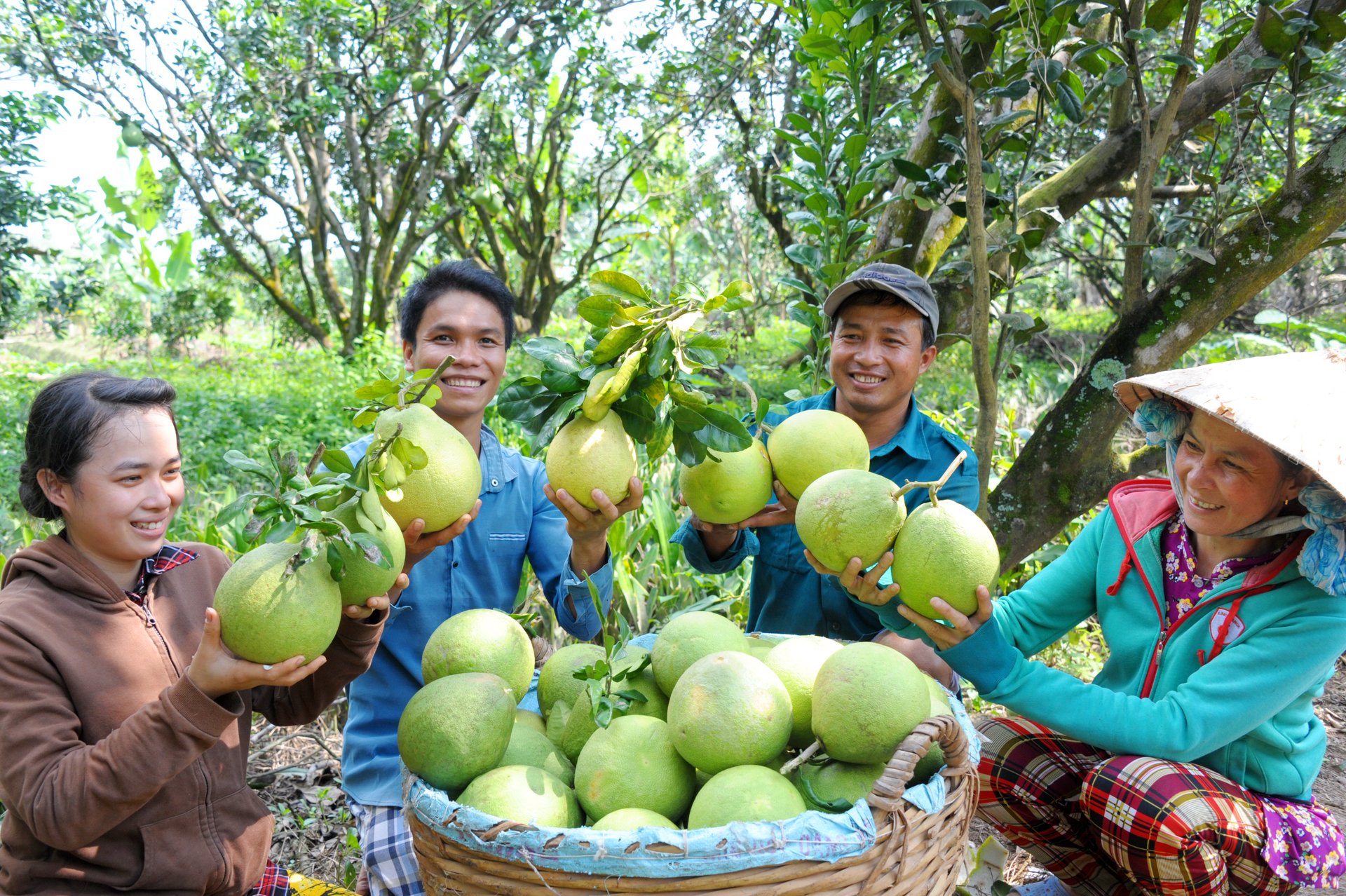
Farmers build many fruit growing models in association with eco-tourism development, profits 1.5 - 2 times higher than that of specialized fruit tree farming. Photo: Le Hoang Vu.
But Can Tho’s fruit industry still has certain concerns about the output in the future. The reason is that farmers who plant fruit trees still run after "prices" and “trends", lack of underwriting contracts of the enterprise and no close linkage between production, processing and consumption. Farmers are expanding the production areas of many fruit trees too fast, especially for durian trees because the fruit sells very well at the moment.
Nguyen Van Luc, a farmer in Nhon Binh hamlet, Nhon Ai commune, Phong Dien district, said: “In this year's durian crop, I have harvested 4,000 m2. The trees are 7 years old, and the yield exceeds 3 tons/1,000 m2, sold for VND 50,000 - 55,000/kg. As for the profit, I earn approximately VND 80 million/1,000 m2. This year, most durian farmers get a good crop and good prices thanks to durian exports to China being promoted. However, the fact that farmers in many localities are promoting durian farming makes me worry about the price of durian in the coming years”.
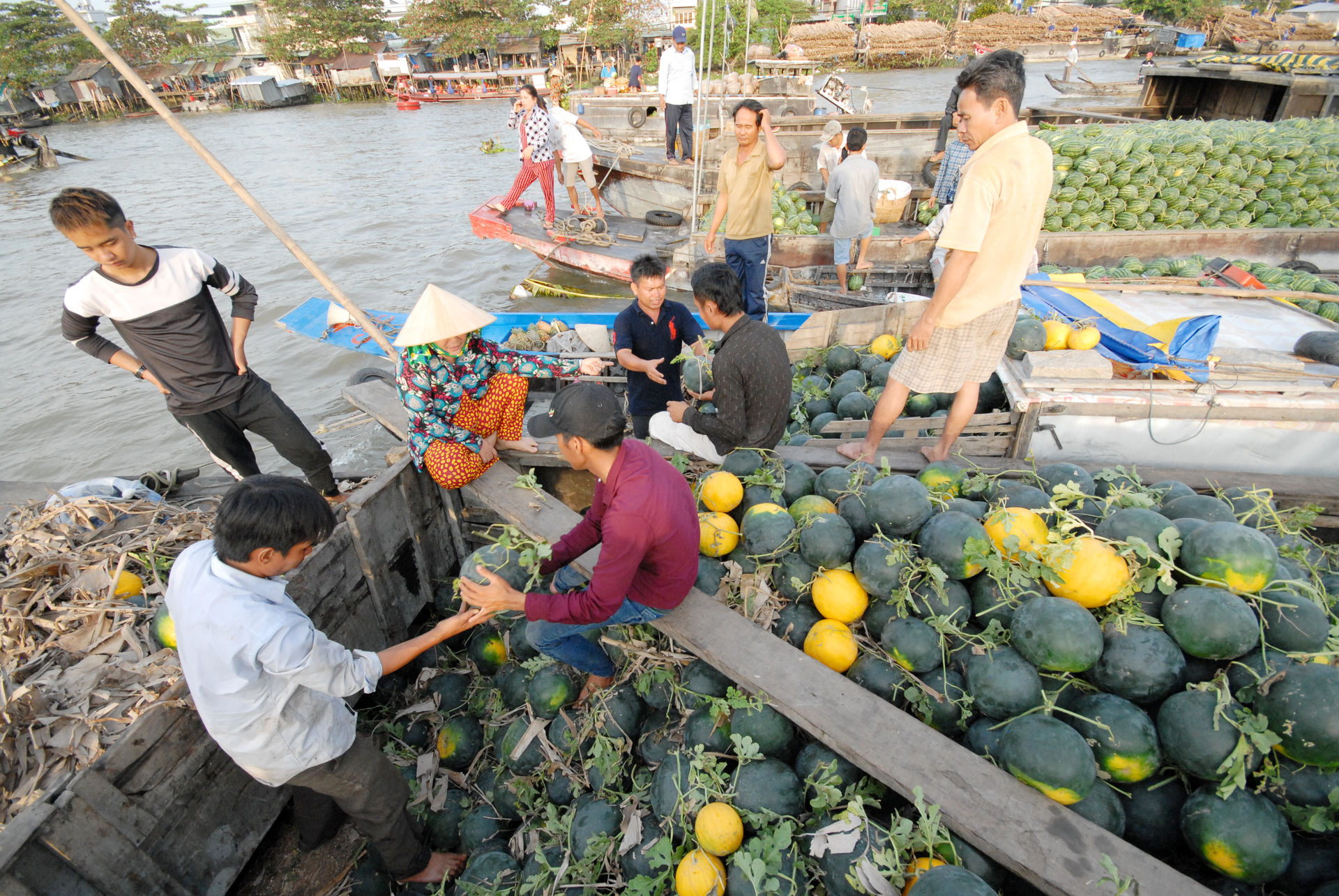
Having production linkage is necessary so that farmers can join cooperatives and cooperative groups, produce while following safe processes and gain large fruit output, aiming toward export markets. Photo: Le Hoang Vu.
According to Tran Thai Nghiem, Deputy Director of Can Tho Department of Agriculture and Rural Development, consumers are very interested in health issues at present, so the search for safe products is not a rare sight. Many farmers in Can Tho have produced VietGAP and GlobalGAP-certified products. There are some units sold to businesses at attractive prices, but there are others who sell at normal prices, which depends on the way they organize production.
In normal cases, the agricultural sector will support farmers to be associated with cooperatives and businesses when they produce according to VietGAP or GlobalGAP. After the first phase, when the support time for the certification of VietGAP, GlobalGAP runs out, farmers will spend their own money to re-certify. This is the basis that helps gardens sell products to businesses at high prices. Farmers need to link together in both production and consumption to ensure the supply of quality products according to the customer’s demands.
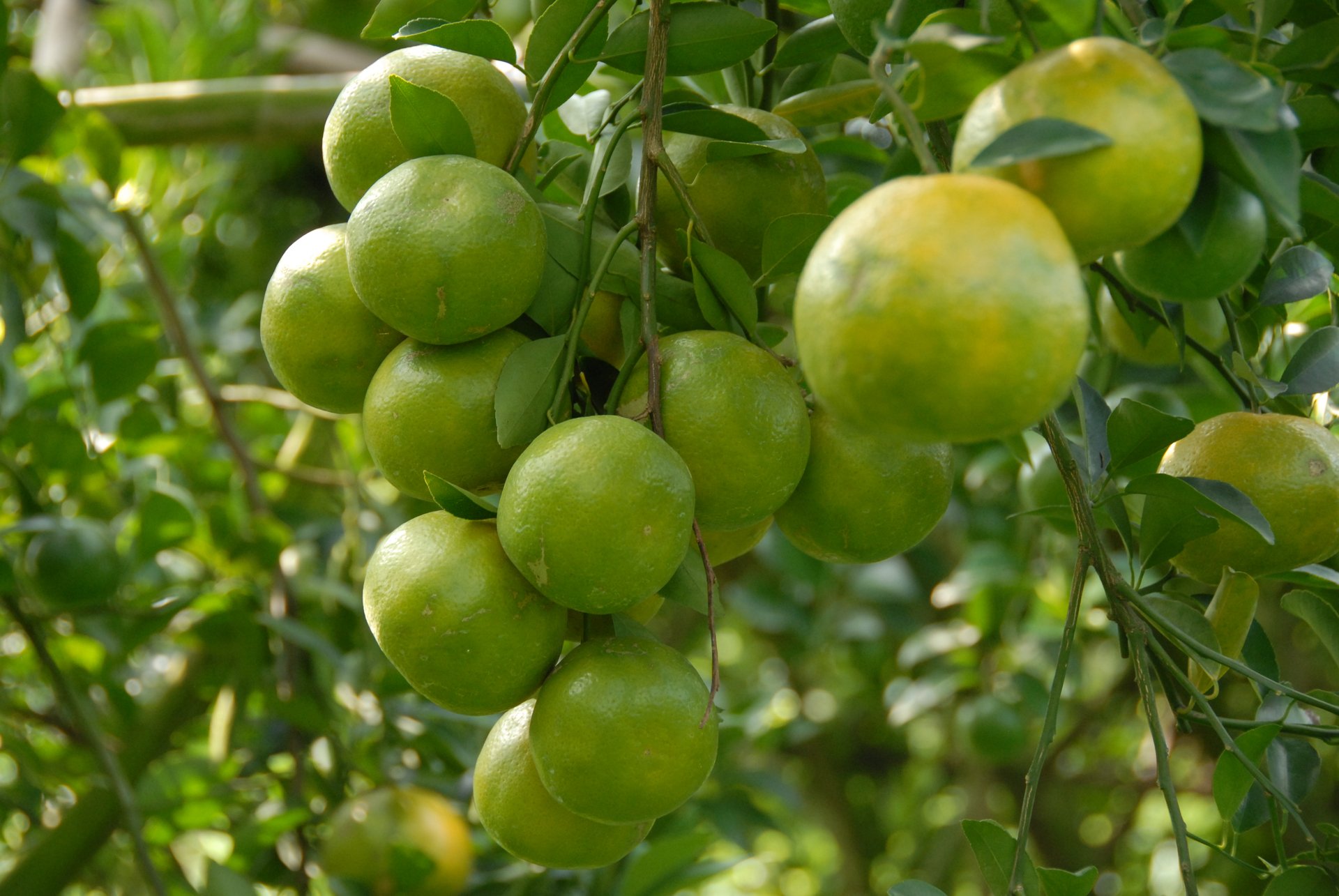
When it comes to exporting Vietnamese agro-products, the US market is considered a meticulous market. Photo: Le Hoang Vu.
In recent years, the USA and China have become more open to Vietnam, and so many types of fruit in the Mekong Delta are exported, showing that Vietnam's agro-products are on the rise. But with more exports comes an increase in requirements for quality, safety criteria and traceability. Vietnamese enterprises wanting to export to the USA must have a US partner to register. Therefore, farmers need to join cooperatives and cooperative groups to gain a large product output, receive guidance from experts and produce while following a uniform process.
Prof. Nguyen Bao Ve, Senior Lecturer at Can Tho University, said, “According to VietGAP or GlobalGAP standards, all three safety factors must be satisfied: Safety for farmers themselves, safety for the environment and safety for consumers. This will help farmers increase the reputation of their products and gain the trust of consumers. However, there may be distortion in the process of bringing safe products to consumers, affecting the reputation of the farmer. Farmers need the linkage to ensure every stage in the production process”.
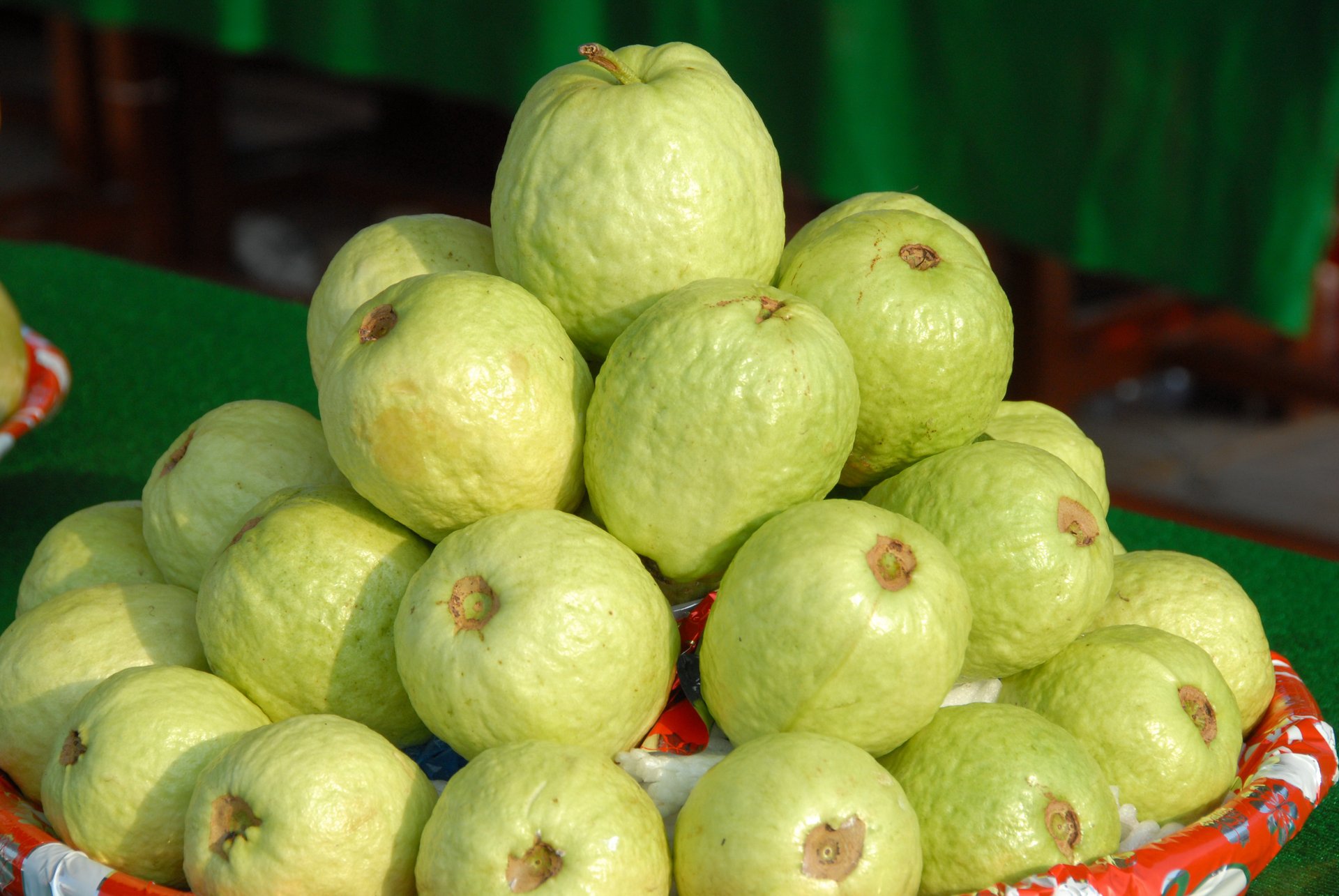
Consumers are currently more aware of the quality inside through the shape of a fruit. Photo: Le Hoang Vu.
In order to stabilize output for fruit trees, Can Tho is providing support to farmers to standardize production for export development. The city also encourages farmers to apply scientific - technical advances and associate with businesses and stakeholders in the product chain.
In recent years, the area of fruit trees in Can Tho has continuously increased, making an important contribution to the transformation of the agricultural production structure to increase value and income for farmers.
However, the number of gardens granted planting area codes and production certificates such as VietGAP, Global GAP in the city is still quite small. Many countries around the world have set stricter requirements on standards and quality for fruits imported into their countries, especially the demand for traceability.
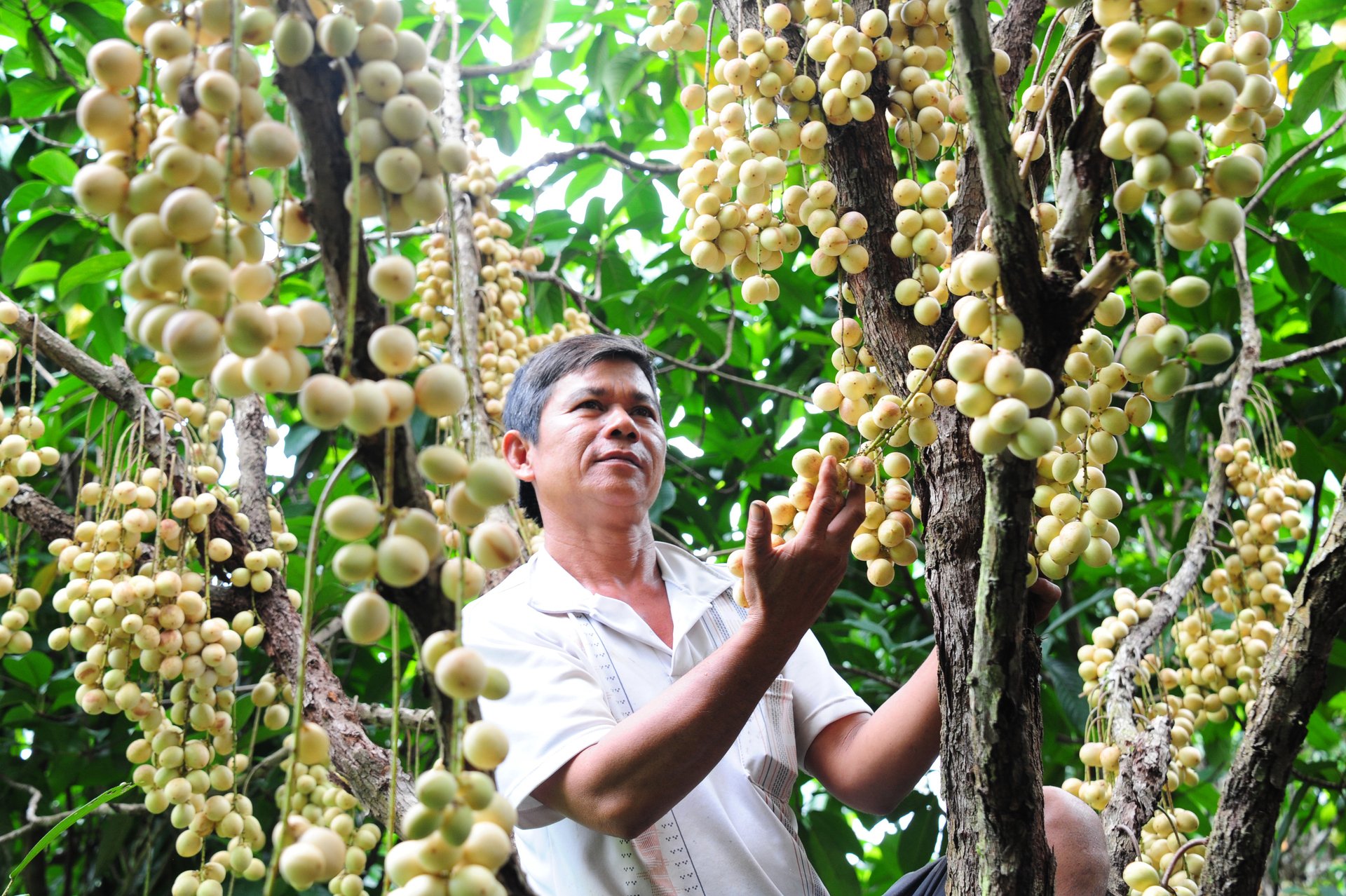
Can Tho city has been granted 46 codes for 37 growing areas, with an area of 602 ha and 7 codes for 5 packing facilities to serve the export market. Photo: Le Hoang Vu.
For Can Tho's fruit to maintain and expand the export market, farmers and cooperatives, fruit production and business enterprises in Can Tho need to promptly standardize production in line with the market’s demands.
Can Tho's agricultural sector has promoted technical training, regularly disseminated information about production and market, especially requirements on standards and product quality of importing countries. Farmers receive support in building effective fruit tree models associated with developing planting area codes. The local authorities encourage farmers to form cooperatives and concentrated fruit-growing areas to facilitate management, organize production according to standards and connect with businesses.
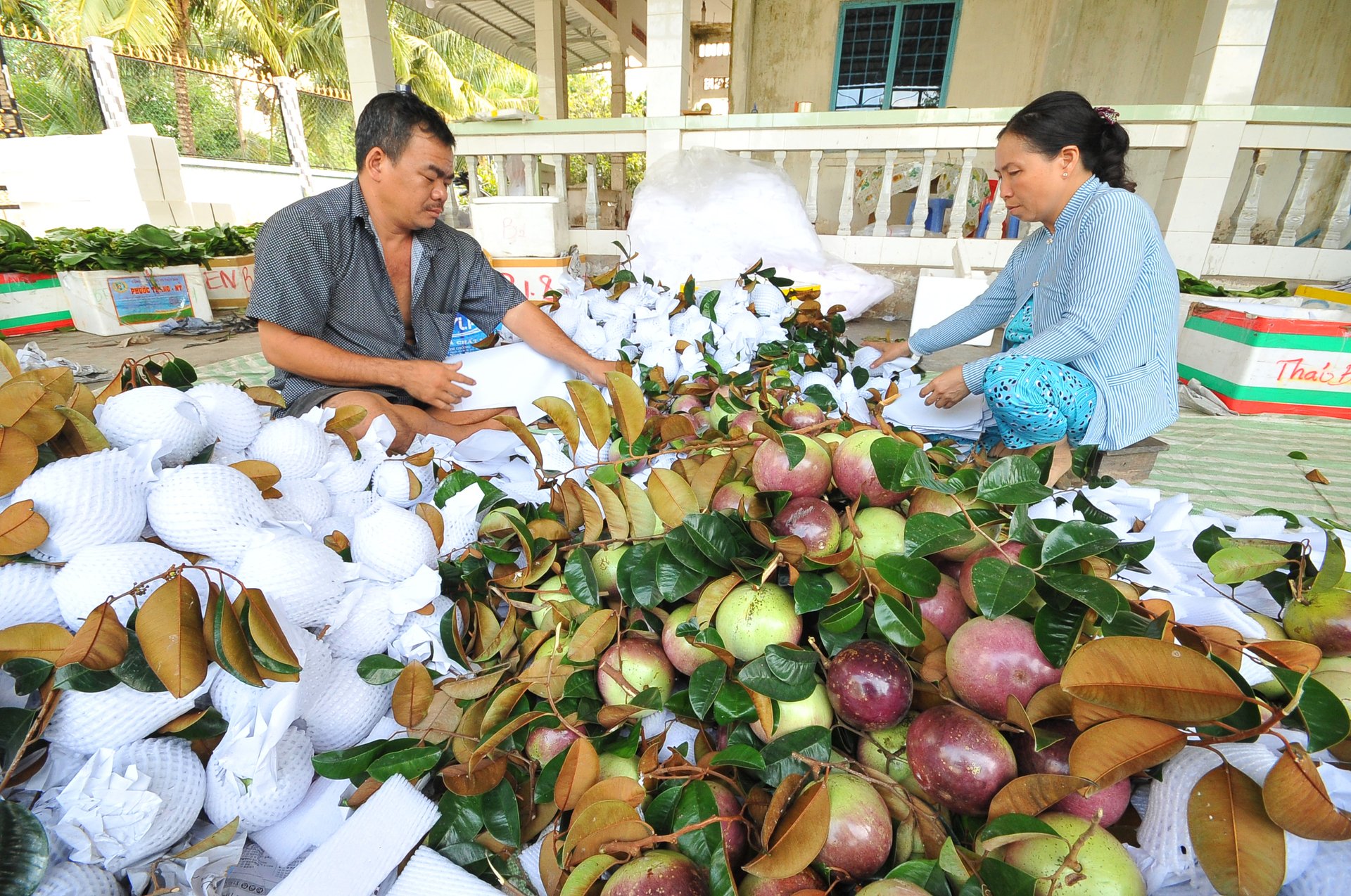
Many kinds of fruits grown in Can Tho such as bananas, jackfruit, lemons, mangoes, longans, durians, star apple are exported to many countries and territories around the world, including difficult markets such as Japan, South Korea, USA and EU countries. Photo: Le Hoang Vu.
In order to well manage the code of planting areas and packing facilities, Tran Thai Nghiem, Deputy Director of Can Tho Department of Agriculture and Rural Development, requested the Sub-Department of Crop Production and Plant Protection, together with specialized agencies under the department, check and monitor codes that have already been issued and review requests for new codes in localities. “The Sub-Department of Crop Production and Plant Protection needs to timely support people and businesses to remove difficulties and overcome limitations. As for farmers and cooperatives, it is essential to proactively register the planting area code to facilitate product output”.
Earlier this March, Can Tho Department of Agriculture and Rural Development, in collaboration with Ngoc Minh Lang Son Import-Export Co., Ltd, held a ceremony to export the first shipment of nearly 20 tons of durian to the Chinese market under the Protocol signed between the Ministry of Agriculture and Rural Development and the General Administration of Customs of China.
Tran Thai Nghiem, Deputy Director of Can Tho Department of Agriculture and Rural Development, said, “After 4 years of negotiations, on July 11, 2022, Minister of Agriculture and Rural Development Le Minh Hoan signed a Protocol with the General Department of Customs of China. Vietnamese durian is officially exported to China, which also means that the durian value will be raised and the market will also be more stable and sustainable. With the support of the agricultural industry in Can Tho city, companies purchasing and exporting durians, units and farmers in cooperatives and cooperative groups have embarked on building planting areas, complying with the criteria set out in the Protocol. And after many days of hard work, the time has come to reap sweet results”.
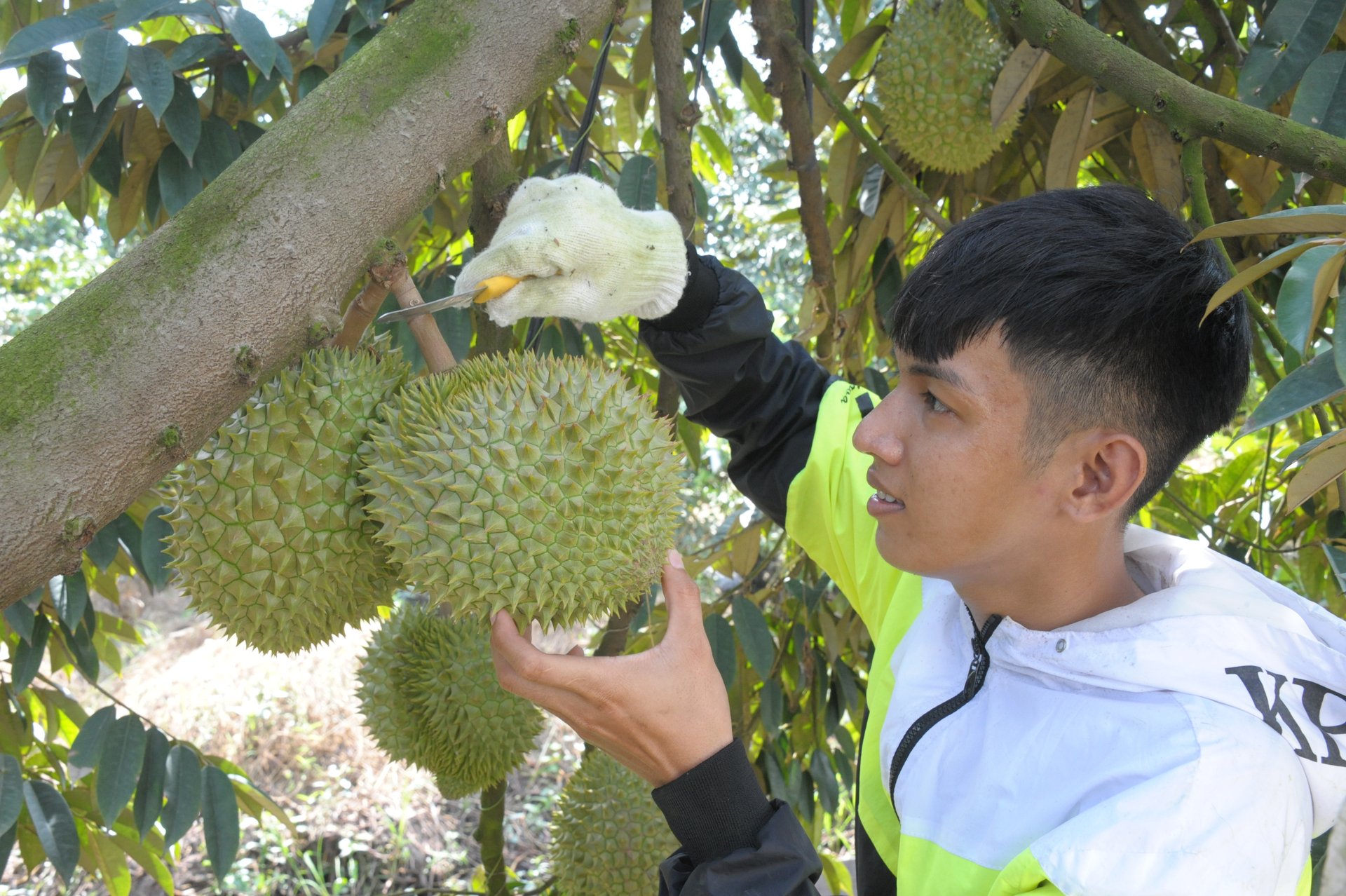
The export of durian in Can Tho city to the Chinese market is not only an important turning point for the durian industry but also creates a motivation for farmers to together produce many valuable agro-products in service of export. Photo: Le Hoang Vu.
According to the Department of Plant Protection (MARD), WTO member countries when exporting fresh fruit must comply with the phytosanitary regulations of the SPS Agreement and the International Plant Protection Convention - IPPC. Fresh fruit products must have a phytosanitary certificate issued by a competent authority.
EU countries develop a set of regulations for each item and they have a strict control system for goods imported across the border. Violations will be warned, and depending on the severity the goods will be returned to the place of origin, discarded or suspended imports.
For China, which was considered easygoing before, now there are also more stringent phytosanitary barriers, so exports in the form of cross-border trade are gradually restricted. China has allowed the official import of 8 fresh fruits from Vietnam including dragon fruit, mango, longan, rambutan, lychee, banana, jackfruit and watermelon with full quarantine requirements.
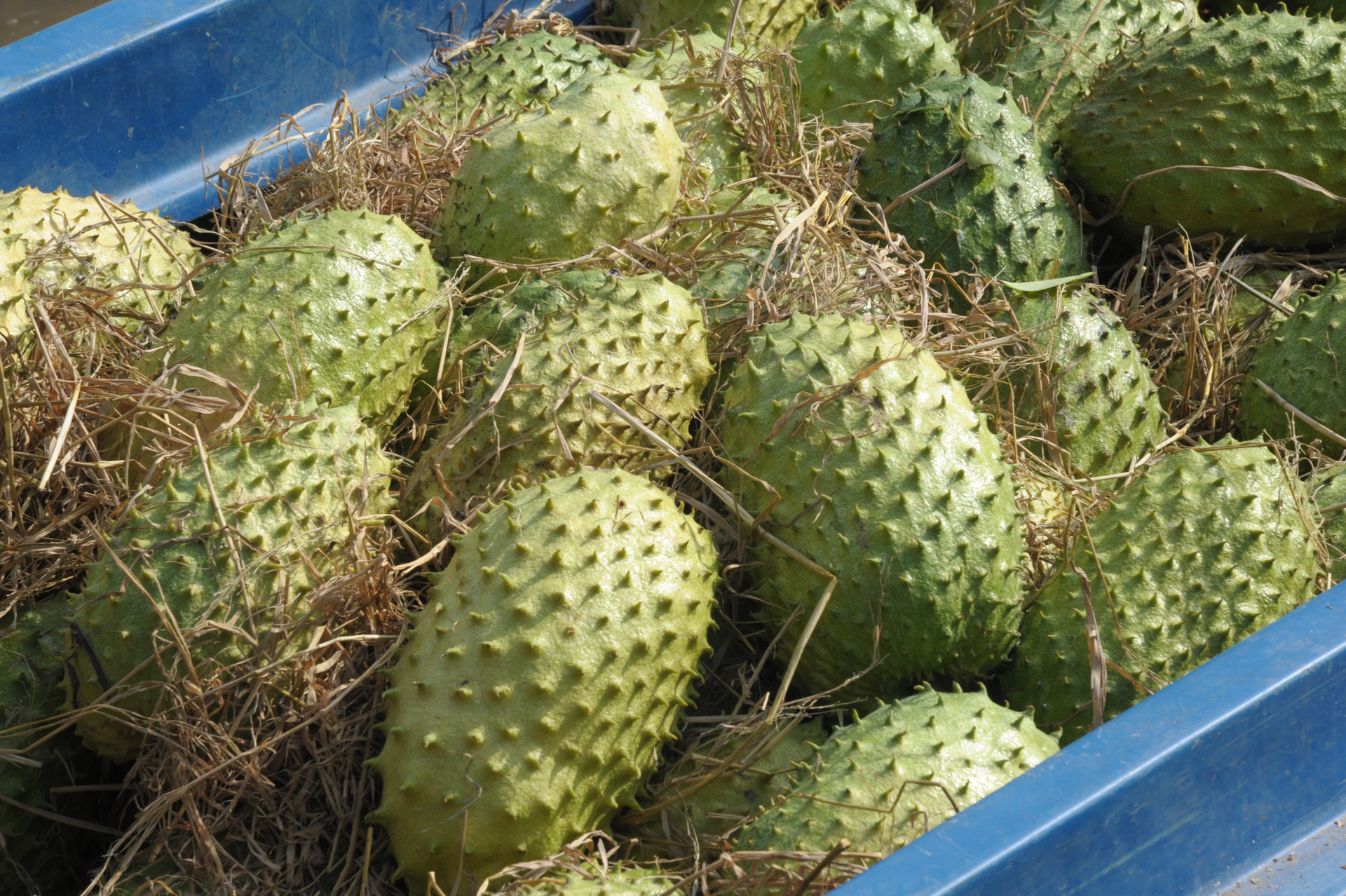
For the first time, Can Tho officially exported nearly 20 tons of Ri6 durian to the billion-people market. Photo: Le Hoang Vu.
“The trend of countries raising phytosanitary barriers will make it more difficult to open the fruit export market. We also lack in-depth and comprehensive research and forecasting on consumer demand and tastes in key markets, especially the lack of information about competitors. These might become major challenges for fruit exports in the long run,” said Nguyen Ngoc He, Vice Chairman of Can Tho People's Committee.
Translated by Samuel Pham
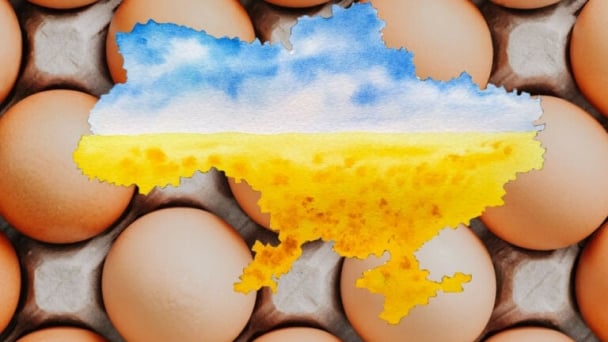
(VAN) Oliyar, a prominent Ukrainian oil and fat manufacturer, has revealed plans to build a farm for 2.3 million laying hens in the Lviv region. The additional production quantities promise to change the competitive landscape of the egg market of the Eastern Europe region.

(VAN) On May 15, Ministry of Agriculture and Environment of Vietnam hosted the 'Connecting Vietnam - Germany agricultural, forestry and fishery trade' seminar in Berlin, Germany.

(VAN) In the face of counterfeit and imitation products, Khanh Hoa Salanganes Nest Company hopes for the prompt completion of the legal framework, strict enforcement against violations, and protection of the bird’s nest brand.

(VAN) Japan's efforts to lower the price of rice through the release of its stockpile may finally be making some progress, albeit at a snail's pace.

(VAN) U.S. tariffs are not only a 'shock', but also an opportunity for Vietnamese businesses to renew their mindset toward comprehensive development.

(VAN) As Bac Giang lychee enters the harvest season, Minister Do Duc Duy expects that the fruit will contribute greatly to agricultural exports due to standardized production and deep processing.

(VAN) Consumers have shown a preference for free-range eggs, but those farming systems are more vulnerable to biosecurity risks like bird flu.